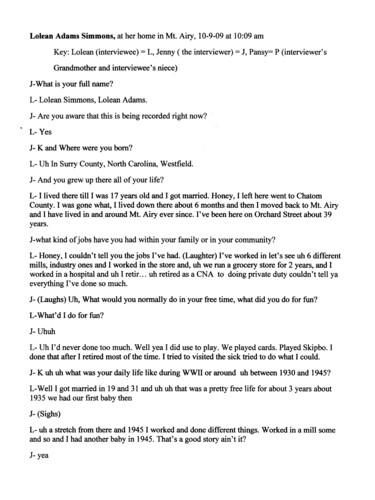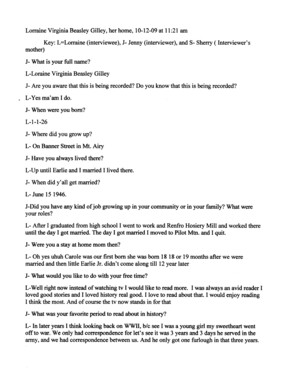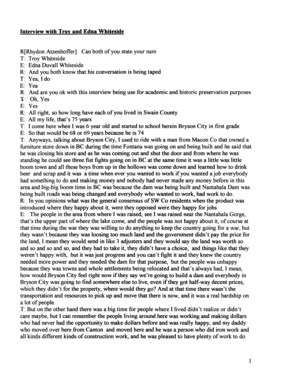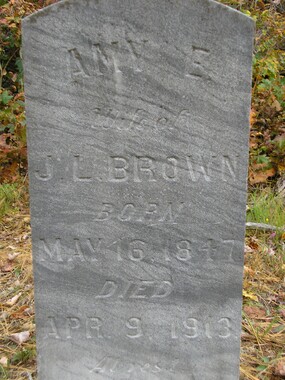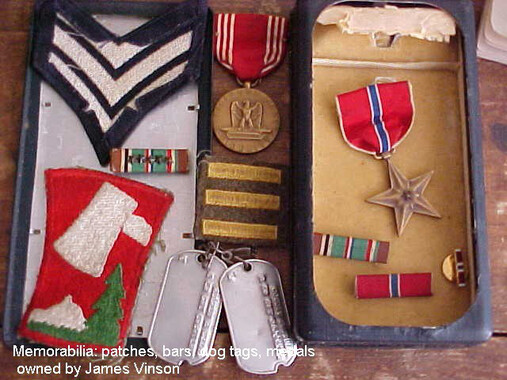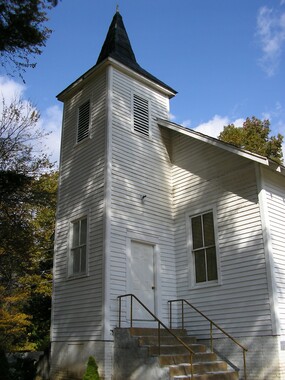Western Carolina University (20)
View all
- Canton Champion Fibre Company (2308)
- Cherokee Traditions (293)
- Civil War in Southern Appalachia (165)
- Craft Revival (1942)
- Great Smoky Mountains - A Park for America (2767)
- Highlights from Western Carolina University (430)
- Horace Kephart (941)
- Journeys Through Jackson (154)
- LGBTQIA+ Archive of Jackson County (19)
- Oral Histories of Western North Carolina (314)
- Picturing Appalachia (6679)
- Stories of Mountain Folk (413)
- Travel Western North Carolina (160)
- Western Carolina University Fine Art Museum Vitreograph Collection (129)
- Western Carolina University Herbarium (92)
- Western Carolina University: Making Memories (708)
- Western Carolina University Publications (2283)
- Western Carolina University Restricted Electronic Theses and Dissertations (146)
- Western North Carolina Regional Maps (71)
- World War II in Southern Appalachia (131)
University of North Carolina Asheville (6)
View all
- 1700s (1)
- 1860s (1)
- 1890s (1)
- 1900s (2)
- 1920s (2)
- 1930s (5)
- 1940s (12)
- 1950s (19)
- 1960s (35)
- 1970s (31)
- 1980s (16)
- 1990s (10)
- 2000s (20)
- 2010s (24)
- 2020s (4)
- 1600s (0)
- 1800s (0)
- 1810s (0)
- 1820s (0)
- 1830s (0)
- 1840s (0)
- 1850s (0)
- 1870s (0)
- 1880s (0)
- 1910s (0)
- Appalachian Region, Southern (15)
- Asheville (N.C.) (11)
- Avery County (N.C.) (1)
- Buncombe County (N.C.) (55)
- Cherokee County (N.C.) (17)
- Clay County (N.C.) (2)
- Graham County (N.C.) (15)
- Great Smoky Mountains National Park (N.C. and Tenn.) (1)
- Haywood County (N.C.) (40)
- Henderson County (N.C.) (5)
- Jackson County (N.C.) (131)
- Knox County (Tenn.) (1)
- Macon County (N.C.) (17)
- Madison County (N.C.) (4)
- McDowell County (N.C.) (1)
- Mitchell County (N.C.) (5)
- Polk County (N.C.) (3)
- Qualla Boundary (6)
- Rutherford County (N.C.) (1)
- Swain County (N.C.) (30)
- Watauga County (N.C.) (2)
- Waynesville (N.C.) (1)
- Yancey County (N.C.) (3)
- Blount County (Tenn.) (0)
- Knoxville (Tenn.) (0)
- Lake Santeetlah (N.C.) (0)
- Transylvania County (N.C.) (0)
- Interviews (314)
- Manuscripts (documents) (3)
- Personal Narratives (7)
- Photographs (4)
- Sound Recordings (308)
- Transcripts (216)
- Aerial Photographs (0)
- Aerial Views (0)
- Albums (books) (0)
- Articles (0)
- Artifacts (object Genre) (0)
- Biography (general Genre) (0)
- Cards (information Artifacts) (0)
- Clippings (information Artifacts) (0)
- Crafts (art Genres) (0)
- Depictions (visual Works) (0)
- Design Drawings (0)
- Drawings (visual Works) (0)
- Envelopes (0)
- Facsimiles (reproductions) (0)
- Fiction (general Genre) (0)
- Financial Records (0)
- Fliers (printed Matter) (0)
- Glass Plate Negatives (0)
- Guidebooks (0)
- Internegatives (0)
- Land Surveys (0)
- Letters (correspondence) (0)
- Maps (documents) (0)
- Memorandums (0)
- Minutes (administrative Records) (0)
- Negatives (photographs) (0)
- Newsletters (0)
- Newspapers (0)
- Occupation Currency (0)
- Paintings (visual Works) (0)
- Pen And Ink Drawings (0)
- Periodicals (0)
- Plans (maps) (0)
- Poetry (0)
- Portraits (0)
- Postcards (0)
- Programs (documents) (0)
- Publications (documents) (0)
- Questionnaires (0)
- Scrapbooks (0)
- Sheet Music (0)
- Slides (photographs) (0)
- Specimens (0)
- Speeches (documents) (0)
- Text Messages (0)
- Tintypes (photographs) (0)
- Video Recordings (physical Artifacts) (0)
- Vitreographs (0)
- WCU Mountain Heritage Center Oral Histories (25)
- WCU Oral History Collection - Mountain People, Mountain Lives (71)
- Western North Carolina Tomorrow Black Oral History Project (69)
- A.L. Ensley Collection (0)
- Appalachian Industrial School Records (0)
- Appalachian National Park Association Records (0)
- Axley-Meroney Collection (0)
- Bayard Wootten Photograph Collection (0)
- Bethel Rural Community Organization Collection (0)
- Blumer Collection (0)
- C.W. Slagle Collection (0)
- Canton Area Historical Museum (0)
- Carlos C. Campbell Collection (0)
- Cataloochee History Project (0)
- Cherokee Studies Collection (0)
- Daisy Dame Photograph Album (0)
- Daniel Boone VI Collection (0)
- Doris Ulmann Photograph Collection (0)
- Elizabeth H. Lasley Collection (0)
- Elizabeth Woolworth Szold Fleharty Collection (0)
- Frank Fry Collection (0)
- George Masa Collection (0)
- Gideon Laney Collection (0)
- Hazel Scarborough Collection (0)
- Hiram C. Wilburn Papers (0)
- Historic Photographs Collection (0)
- Horace Kephart Collection (0)
- Humbard Collection (0)
- Hunter and Weaver Families Collection (0)
- I. D. Blumenthal Collection (0)
- Isadora Williams Collection (0)
- Jesse Bryson Stalcup Collection (0)
- Jim Thompson Collection (0)
- John B. Battle Collection (0)
- John C. Campbell Folk School Records (0)
- John Parris Collection (0)
- Judaculla Rock project (0)
- Kelly Bennett Collection (0)
- Love Family Papers (0)
- Major Wiley Parris Civil War Letters (0)
- Map Collection (0)
- McFee-Misemer Civil War Letters (0)
- Mountain Heritage Center Collection (0)
- Norburn - Robertson - Thomson Families Collection (0)
- Pauline Hood Collection (0)
- Pre-Guild Collection (0)
- Qualla Arts and Crafts Mutual Collection (0)
- R.A. Romanes Collection (0)
- Rosser H. Taylor Collection (0)
- Samuel Robert Owens Collection (0)
- Sara Madison Collection (0)
- Sherrill Studio Photo Collection (0)
- Smoky Mountains Hiking Club Collection (0)
- Stories of Mountain Folk - Radio Programs (0)
- The Reporter, Western Carolina University (0)
- Venoy and Elizabeth Reed Collection (0)
- WCU Gender and Sexuality Oral History Project (0)
- WCU Students Newspapers Collection (0)
- William Williams Stringfield Collection (0)
- Zebulon Weaver Collection (0)
- African Americans (97)
- Artisans (5)
- Cherokee pottery (1)
- Cherokee women (1)
- College student newspapers and periodicals (4)
- Education (3)
- Floods (13)
- Folk music (3)
- Great Smoky Mountains National Park (N.C. and Tenn.) (1)
- Hunting (1)
- Mines and mineral resources (2)
- Rural electrification -- North Carolina, Western (2)
- School integration -- Southern States (2)
- Segregation -- North Carolina, Western (5)
- Slavery (5)
- Sports (2)
- Storytelling (3)
- World War, 1939-1945 (3)
- Appalachian Trail (0)
- Cherokee art (0)
- Cherokee artists -- North Carolina (0)
- Cherokee language (0)
- Church buildings (0)
- Civilian Conservation Corps (U.S.) (0)
- Dams (0)
- Dance (0)
- Forced removal, 1813-1903 (0)
- Forest conservation (0)
- Forests and forestry (0)
- Gender nonconformity (0)
- Landscape photography (0)
- Logging (0)
- Maps (0)
- North Carolina -- Maps (0)
- Paper industry (0)
- Postcards (0)
- Pottery (0)
- Railroad trains (0)
- Waterfalls -- Great Smoky Mountains (N.C. and Tenn.) (0)
- Weaving -- Appalachian Region, Southern (0)
- Wood-carving -- Appalachian Region, Southern (0)
- Sound (308)
- StillImage (4)
- Text (219)
- MovingImage (0)
Interview with Lolean Simmons Adams
Item
Item’s are ‘child’ level descriptions to ‘parent’ objects, (e.g. one page of a whole book).
-
Lolean Simmons Adams discusses her life before, during, and after WWII, the way the war affected her relatives who served, and also acquaintances including someone who was a conscientious objector. Also present during the interview was Pansy Jessup, Lolean's niece.
-
-
Lolean Adams Simmons, at her home in Mt. Airy, 10-9-09 at 10:09 am Key: Lolean (interviewee)= L, Jenny (the interviewer)= J, Pansy= P (interviewer's Grandmother and interviewee's niece) J-What is your full name? L- Lolean Simmons, Lolean Adams. J- Are you aware that this is being recorded right now? · L- Yes J- K and Where were you born? L- Uh In Surry County, North Carolina, Westfield. J- And you grew up there all of your life? L- I lived there till I was 17 years old and I got married. Honey, I left here went to Chatom County. I was gone what, I lived down there about 6 months and then I moved back to Mt. Airy and I have lived in and around Mt. Airy ever since. I've been here on Orchard Street about 39 years. J-what kind of jobs have you had within your family or in your community? L- Honey, I couldn't tell you the jobs I've had. (Laughter) I've worked in let's see uh 6 different mills, industry ones and I worked in the store and, uh we run a grocery store for 2 years, and I worked in a hospital and uh I retir ... uh retired as a CNA to doing private duty couldn't tell ya everything I've done so much. J- (Laughs) Uh, What would you normally do in your free time, what did you do for fun? L-What'd I do for fun? J- Uhuh L- Uh I'd never done too much. Well yea I did use to play. We played cards. Played Skipbo. I done that after I retired most of the time. I tried to visited the sick tried to do what I could. J- K uh uh what was your daily life like during WWII or around uh between 1930 and 1945? L-Well I got married in 19 and 31 and uh uh that was a pretty free life for about 3 years about 193 5 we had our first baby then J- (Sighs) L- uh a stretch from there and 1945 I worked and done different things. Worked in a mill some and so and I had another baby in 1945. That's a good story ain't it? J- yea L- Ten years apart. J- What would you say that ay was was there anything different while you worked in the mills then it was before that time period? L- Whatcha' mean now about anything different? J-Was there anything different with like as far as urn like you had to work a lot more? L- Oh yeah you had to work a lot more you didn't have as many convenience and uh my husband's nephew lived with us and he was the one who went into service and uh that's urn 41 • and uh they hadn't been in there six months and he was shipped overseas and he was put on the front lines and he was wounded wounded in service and uh he was shipped back to Tennessee and I think he was in a hospital out there for about six months. J- Shew. L- Then he come back and lived with us for a while and he took up painting and that was his career. J- Did he ever talk about being in the war some or did he just kind of and let it fade away? L- He wanted it to fade away he didn't wanna talk about it . J- Yea. L- His wife said he had that he had nightmares that sometimes he would set up and he'd say said jump up in up in bed screaming that they was coming over that they was comin' over to get him J- Do you know where he might have been shipped to? L- Nah where when he was on uh naw I don't ... I really don't know the place where he was. J- Urn let's see how do you think the community such as the family or the churches in the area reacted to being in war L-Well everybody, most church people were in prayer because it was so terrible. (coughs) And your grandpa, pansy's daddy, he was uh uh he really didn't so so I got a picture they got a picture if I had a picture id show you uh they sent him down to uh in uh to be you know they had to be examined he liked to went crazy then they sent him down to be examined but he didn't pass because he was flat footed did you know that pansy? P- Nah, I didn't know that no. J-I have his urn selective service card its out in the car. L-Haveya? J- Yea L-Well He didn't (stutters) pass the examination is that right? J-Yea. L-Yea uhuh yea You've seen the picture I guess? The picture of him I looked at that last night I thought uh I got soo many pictures here of my new babies im a great great grandma twiced, (sighs awe shews) J- Shew, that's a lot of greats. L- That was made about two three weeks before he went, they wanted a family picture before he went to be examined. J- Yeah I have this one. L- Do you? J-uhuh. P- Oh you're talking about daddy. L- Ya Daddy yea and uh this is uh the Adams boys now they was in they was in service but neither one of them was wounded as a private. P- Wasn't he colored blind too Vera-uh Lolean? L- Yea. P- I was thinking they said daddy was color blind too L- Yea you are? P- Yeah. J- My daddy is too. L- Well uh. J-1 didn't know that. P- I thought it was gonna be a hindrance in me getting a job ya know in Winston. L- Uhuh P- They questioned me and showed me colors and asked me if I would have trouble remembering them that they had told me L- Well. J- Shew that's rough. Well how would you say that the economy affected your family and say as far as your job in the mill? L- Well the economy effected everybody now they rationed back then they rationed they rationed gas and uh urn let's see well uh the war had just ended when Alice Mae was born in '45 and ha they had kayro syrup rationed and see I breastfed her and Roy would go to the store and he wanted kayro and he'd go and tell 'em it was for the baby for the baby's milk. (Laughter ensues) Yea uh it effected everybody people didn't live quite as high as uh they did there was a shortage in things J- And uh would you see urn, I know that urn some of my family members they uh would go around and collect cans and stuff to get money for did you see anything like that? L-Na didn't, uh I heard of it but didn't none of my family have it. J- Did you or your family buy war bonds? J- Ok was there any way that you uh tried to help the war effort or anything that your family might have done? L- Yea you know people that didn't have quite as much as you did you always tried to help and the boys then you can see a picture of them you can see a picture of me and my brother was made, honey the ggas shortage all all that they allowed ya was gas to drive ya to work on ya know And the young boys would took the wheels off the cars and made hover cars, that used to be a thing hover hover, that that went down through the years and that's a picture of me and him standing behind one of his uh hover cars he made all the boys made hover cars and drove horses (Noise Outside) J- Wow! (Laughter) Woah. Shew. Who do you know that urn served in WWII and uh what was their relationship to you or how did you know the? L- Well as I told you that uh nobody yeah my cousin's son got killed in service too (undecipherable) Easter's boy, Cory, and uh then the uh one I told you that was Roy's nephew that uh stayed with with us you know. J- Right. L- He got wounded in service and uh I'm trying to think I don't think theys, Pansy-Did Ralph Easter, or any of them, was they in service? L- Nuhuh uh. Cory was Ralph's nephew, P- Ok. L- Ralph got, a policemen killed Ralph. P- Oh I know that. L- Yeah urn. J- While you was in, while your husband's nephew was in the war uh were y'all able to keep in contact with him with any letters or anything like that? L- For a while we didn't there was a period there that we went through but then we got several of them uh he wasn't overseas that long he was in trainin' here ya know an' I think he'd been out there on the front line two days he's still Ramen still got (undecipherable). In his shoulder and the leg was damaged real bad he couldn't walk. J-And uh was he do you know if he was drafted or did he volunteer? L- He was drafted J- He was drafted. Do you know how did how did that affect him was he upset about it or? • L- Yea he was upset about it he didn't wanna go. J- Yea I bet I bet everyone in the family felt that way too. Ha. L- Well yea ya know uh they sent Lester and he was and they was gonna send Earnest Brother the one I call Brother, but he was a (undecipherable) court's chief objector. J- I didn't even know that till this summer. L-What? J- That he was a urn uh uh an objector. L- Did you know that he was? J- I didn't know that till this summer but urn yea that blew my mind. (Laughter) J- I came across some of that stuff. L- Yea he was a * objector. J- Shew, well umm do you know what branch your husband's nephew went into? L- No I don't. J- Ok. (Cough and then Silence) J- Was there was there anything in the newspapers or radio urn about the war or what was going on during that time? L- Yea that was the only way you could get it now you could everything by times help ya know it was through the newspapers and whatcha had on the radio and many people a lot of people didn't even have electric radio hey had little battery radio that's the way ya gotcha news. J- Well, Was it hard to get the batteries for the radio? L-Nah most people could get 'em. I still got a battery radio. There's a war going on still. (Laughter) J~ It's just like old times. L- I got that back when I I carry it back and forth to the kitchen with me ya know its Joe's radio. Leah, he, Joe got up to go to work every morning, now Joe, Leah's husband, was in service too and he'd take that radio and he'd go in there and sing with that radio then after he got so sick she sent him she had to put him in the nursing home she give me his little radio. J~ (Sighs)What was your life like after the war like as far as your job? · L~ Well it uh uh was kindly hard then to get jobs not like ti is now but ya know the economy had to slowly build back up ya know. J~ And urn after after the war was over did you see anything change with the activites uhh that you and your family did like urn uh outside of working? L- No I don't think so. J-Okumm L-Anyone that's 95 year old it's hard for 'em to remember. (Laughs) J~ Ooo hum. Yea . After the war was over you said there was a change in economy well how do you think that might have affect the community that you lived in, like do you think that it made it harder for the community to survive from day to day? L~ Yes. J~ How so? L~ Hum? J- How so? L- They didn't have the things that they you know really needed. J- So was there umm a big difference between being in the wartime economy to after the war was over or did it pretty much stay the same? L- Well it just it stayed the same for a while it took it awhile for the economy to start coming back. J~ Right. So umm do you have any newspaper clippings or or pictures that you say took from during that time period? L-No. J- Umm and is there anything else you would like to tell about this time? L- I don't know I can't think of it. (Laughter) What I might tell ya might not be that interesting I dunno. I was thinking I don't know how come me to think of the Vietnam War and it just struck me after you called me and I thought well that's it now I've got a magazine on that. J-On the Vietnam War? L- Yea and urn David Hatcher said I even called him last night to ask him a some questions, he married Willa Dean, Losa's girls they live right up here and he was prisoner of war for seven years. J- Shew. L- He was ... his plane was shot down and it was shot down in '66 and un lo ... Roy died in '67 and he had been POW for a year and Willa Dean come by the hospital and they going bout ... she was dying to see me and she was so happy she had gotten a letter that was the 1st time he'd been a prisoner of war and that was the 1st time he'd gotten any news. J- Shew. That's rough. L-Yeah I got a magazine over there his picture. Is in it and urn some news reporter got in over there some way and made this pictures. There a lot about the war in it in this magazine and him and another boy they got all this table ill show it to ya. J-Ok L- Are you interested in that? J-Yeah! L- K, ill show it to ya. J- That's the mail person. (Silence and moving about the room) L-You know this is old really, (Laughter and nose blowed) L- Lemme slide back here and we'll see ifya can get over here. (Cough) L- Ok. You can sit on this thing can't ya? J- oh yeah. L- Ha. Ha. Let's see where am I going? I'll show ya his picture and then ya can ... members only it says ya know they advertise everything else ... there's a lot about the war in here a lot of history in here if you wanna take this book and look at it you can. J- Yea that'd be great. L-That's him right there. (She pointed to a picture in the Time magazine) Huhuh. You see all that food right there? J- Yea. L-And you know what they fed him .. rice! They made them pictures. They's, there's a reporter got in over there they fixed that table it tells what ails on there ya know and look how sad he looks. J- Yeah. • L- And all they got to do was to march around and look at it and he said all they got was rice he said there was full houses only so big and make them get in there and squat down and make them stay eight hours. They couldn't raise up nothing its awful what they went through yea there's a lot in on the war if this'll help you any. J- Yea it'll help me. L- Well you can take it. P- Now that would be Daddy's cousin's daughter's husband? L- Yea uhuh. P- That's who the prisoner is right there. J- Ok. Alright. L- Huh yea that's right, it's our cousins daughter it's her husband urnm hum. J- Wish I could get back to the page. P-1 know it was a lot of talk when he got captured wasn't it? L- Umhum yeah the and it tells about the children ya know they was so small the oldest one kindly recognized him it tells them though they cried for their daddy and ya ya know I called him last night and talked to him some and poor little Willa Dean she comes to visit me some ... (cut out: story of family's well being) ... but he's done a lot of good things since he's come back here David has but he was prison for seven years. J- Shew. I can't imagine coming back after that there would be too much shock for me. L-Everything was different ya see the oldest one I think she barely knew him she was about four. P- Now that was something for Willa Dean to wait for wasn't it she didn't know if she'd ever. L-She said she didn't know what she was whether she was a widow or what (Cut out: story of family's well being). L-Is there anything else you'd like to question me about? J- That's all the questions I had prepared. L-Well I don't know if I'll be much help to ya. J- Oh everything's a help. (Laughter) J- Would you mind if I if I was able to get a copy of that picture you was showing me of the Hoover cars? L- Huh? . J- Would you mind if I was able to get a copy of the hover cars? L- Uh naw well ya know I had a little one and that lady has took that off so I don't know where that's at But no I don't mind that's one of the hover cars thought got two wheels off the car. (Laughter) L- I remember after Roy and I got married but still ya know see we married in 31 me and Bertha Brinkley and uh grandpa had these horses and papa had the horse and they had a horse named Olea and me and Bertha Brinkley uh hooked that thing up to the the hover car to see Rosella to John Gilley's. We drove that thing over there. J- Yea (laughter) gah. L-And that's the way they went courting honey the boys went to see their girlfriend in them hover cars because they couldn't get gas J- (Laughter) Golly oh man. So, so, would it be ok if I could take it and get a copy of it and bring it back? L- Yea just so as you bring it back to me. J- Oh yes ma'am. L- 'Cause that's the only one I've got. J- Oh I really appreciate that. (a noise and then silence) P- You'll have a picture of Aunt Lolean the one that uh give you all that information now when you take it to class you tell that that's the lady. L- I was 18 and he was 21 J- Oh I love that dress L- That picture is old you see down at the bottom there it got tore and it when that one was blown up. End
Object
Object’s are ‘parent’ level descriptions to ‘children’ items, (e.g. a book with pages).
-
Lolean Simmons Adams discusses her life before, during, and after WWII, the way the war affected her relatives who served, and also acquaintances including someone who was a conscientious objector. Also present during the interview was Pansy Jessup, Lolean's niece.
-
